As a home remediation specialist, it is common to encounter homeowners who complain about musty basement smells. Musty odors in basements are often caused by mold growth due to moisture buildup. This can lead to health problems for those living in the home and can also decrease the property value. Therefore, it is important to address this issue as soon as possible.
There are several ways to get rid of musty basement smells, but the most effective method depends on the cause of the odor. In this article, we will discuss some common causes of musty basement smells and offer tips on how to prevent and eliminate them. By following these guidelines, homeowners can breathe cleaner air and enjoy a fresh-smelling home.
Understanding The Causes Of Musty Basement Smells
According to a recent study, over 60% of homes in the US have basements that are prone to musty smells. These odors can be caused by many different factors, including high humidity levels, poor ventilation, and water damage. To prevent these odors from becoming a health hazard, it’s important to understand their causes and take the necessary measures to address them.
One of the main causes of musty basement smells is high humidity levels. This can occur when warm air meets cold surfaces such as concrete walls or floors. As the air cools, it loses its ability to hold moisture which then condenses on these surfaces. The resulting dampness creates an ideal breeding ground for mold and mildew, whose spores can trigger allergic reactions and respiratory problems in some people.
Another factor that contributes to musty basement smells is poor ventilation. When basements lack proper ventilation, stale air accumulates and becomes trapped inside. This stagnant air can cause unpleasant odors that are difficult to eliminate without fresh air circulation. In addition, inadequate airflow can exacerbate existing moisture problems by preventing adequate drying or evaporation.
To prevent musty basement smells from becoming a health risk or safety hazard, it’s essential to identify their sources and take appropriate measures to address them. In the next section, we’ll explore how to pinpoint where these odors are coming from and what steps you can take to get rid of them for good.
Identifying The Source Of The Odor
The first step in eliminating musty basement smells is to identify the source of the odor. Common sources include water leaks, moisture issues, poor ventilation, and mold growth. A musty smell indicates that there is mold or mildew present in your basement. Mold thrives in damp areas with little to no sunlight, making basements a prime location for its growth.
It is important to address the source of the musty odor not only for aesthetic reasons but also for health hazards. Breathing in mold spores can cause respiratory problems, allergies, and even infections. It is crucial to take action promptly once you have identified the source of the odor to prevent further damage to your home and potential health risks.
If you are unsure about the source of the odor or suspect that there may be mold growth present, it is recommended that you consult with a professional remediation specialist who can provide an accurate assessment and guide you through the proper steps for remediation. Remember that prevention is key in avoiding future musty odors and potential health hazards associated with mold growth.
Fixing water leaks and moisture issues is essential in preventing future musty odors from occurring. In our subsequent section, we will discuss practical steps on how to fix these issues and how to prevent them from happening again.
Fixing Water Leaks And Moisture Issues
One of the most common causes of musty basement smells is water leaks and moisture issues. These problems can lead to mold, mildew, and other unwanted odors in your home. To address these issues, it’s important to identify the source of the problem and take action to fix it.
First, check for any signs of water damage or leaks in your foundation. This could include cracks in the walls or floors, dampness or puddles on the floor, or even visible mold growth. If you notice any of these issues, it’s important to address them immediately to prevent further damage to your home.
Another key step in fixing basement moisture issues is waterproofing your walls. This involves applying a waterproof sealant or membrane to the exterior of your foundation walls to prevent water from seeping through. Additionally, installing a sump pump can help remove excess water from your basement and prevent future flooding.
- Install a dehumidifier to reduce moisture levels in the air.
- Ensure that gutters and downspouts are properly installed and functioning.
- Grade soil away from foundation walls.
- Consider using landscaping beds with plants that absorb excess water.
By taking these steps to fix foundation issues and waterproof your walls, you can eliminate musty basement smells caused by water damage and moisture issues. However, addressing these problems is only one part of creating a clean and healthy living environment in your home. In the next section, we’ll discuss how properly ventilating your basement can further improve air quality and reduce unwanted odors.
Properly Ventilating The Basement
One of the most common mistakes homeowners make is to neglect the importance of fresh air in their basements. Many people assume that because their basements are underground, they don’t need ventilation. However, this couldn’t be further from the truth – proper ventilation is crucial for maintaining a healthy and habitable environment in your basement.
Tips for improving ventilation include opening windows and doors whenever possible to allow fresh air to circulate throughout the space. Another option is to install vents or exhaust fans that can help draw stale air out of the basement and bring in fresh air from outside. It’s also important to keep your HVAC system in good working order, as this can help improve airflow throughout your home and prevent moisture buildup in your basement.
If you’re serious about eliminating musty basement smells, it’s essential to take steps to properly ventilate your space. By following these simple tips, you can improve air quality, reduce humidity levels, and create a more comfortable living environment for you and your family. In the next section, we’ll explore another effective method for reducing humidity levels: using dehumidifiers.
Using Dehumidifiers To Reduce Humidity
Properly ventilating your basement is a crucial first step in getting rid of musty smells. However, in some cases, it may not be enough to completely eliminate the problem. This is where dehumidifiers come into play. Dehumidifiers work by removing excess moisture from the air, which can help prevent mold and mildew growth.
When using a dehumidifier, it’s important to understand its effectiveness and optimal placement. The effectiveness of a dehumidifier depends on several factors such as the size of the room, level of humidity, and airflow. It’s recommended to use a hygrometer to measure the humidity levels in your basement before purchasing a dehumidifier. Optimal placement of a dehumidifier includes placing it in areas where there is high humidity or dampness such as near water heaters or washing machines.
Using a dehumidifier can greatly improve indoor air quality and reduce musty smells in your basement. However, it’s important to remember that a dehumidifier alone may not completely solve the problem. In addition to proper ventilation and the use of a dehumidifier, cleaning and disinfecting the area can further help eliminate musty odors caused by mold and mildew growth.
Cleaning And Disinfecting The Area
Although it can be tempting to ignore musty basement smells, they could indicate a bigger problem brewing. The smell is often associated with mold and mildew growth, which can lead to health problems if not addressed promptly. Even if you’re not experiencing any adverse effects now, it’s best to take care of the problem as soon as possible.
The first step in cleaning and disinfecting the area is determining the source of the odor. It could be caused by dampness or moisture build-up, lack of ventilation, or even water damage. Once you’ve identified the source, you can begin remediation efforts. There are several DIY solutions available that can help eliminate musty odors, such as using baking soda or vinegar to absorb the odor. However, for more severe cases, hiring professionals may be necessary.
If DIY solutions don’t work or if you’re dealing with a larger mold or mildew problem, it’s time to bring in professionals. They have specialized equipment and training to handle these situations safely and effectively. They’ll be able to identify underlying issues and provide long-term solutions that will prevent future problems from arising.
Moving on to removing mold and mildew requires diligent effort that involves specific steps in order for a successful outcome.
Removing Mold And Mildew
Mold and mildew are the most common causes of musty basement smells. To remove them, you need to identify the source of the problem and take steps to eliminate it. Start by cleaning all surfaces in your basement with a mixture of bleach and water. This will kill any existing mold or mildew and prevent it from spreading.
To prevent reoccurrence, it’s essential to keep your basement dry and well-ventilated. Repair any leaks or water damage immediately, use a dehumidifier if necessary, and open windows or use fans to increase airflow. Regularly inspecting your basement for signs of moisture or mold growth can help catch problems early before they become more severe.
It’s crucial to address musty basement smells promptly because prolonged exposure to mold and mildew can pose health risks such as allergies, respiratory problems, and even infections. If you have persistent symptoms like coughing, sneezing, or headaches that don’t go away after leaving your basement, seek medical attention immediately. Remember that prevention is key when it comes to keeping your home safe from mold and mildew.
Transition: Now that you know how to remove mold and mildew from your basement let’s explore natural remedies that can absorb odors effectively without using harsh chemicals.
Using Natural Remedies To Absorb Odors
According to a recent study, the Environmental Protection Agency (EPA) found that indoor air pollution is one of the top five environmental risks to public health. This is concerning for those who have musty basement smells as it can lead to respiratory issues and aggravate allergies. To combat this issue, homeowners often turn to remedies such as chemical sprays and cleaners.
However, many people are becoming more aware of the negative effects that chemicals can have on their health and the environment. Natural remedies are becoming increasingly popular due to their effectiveness without harmful side effects. Using natural items like baking soda, vinegar, or activated charcoal can help absorb odors and freshen up a musty basement.
Using plants is another effective way to absorb basement odors naturally. Plants not only add beauty but also act as natural air purifiers by absorbing airborne pollutants through their leaves and roots. The following bullet points list some plants that are effective in reducing musty basement smells:
- Spider Plant: Known for its ability to remove formaldehyde from the air.
- Peace Lily: Helps remove mold spores from the air.
- Boston Fern: Acts as a natural humidifier while removing toxins such as benzene and xylene.
By using natural remedies or incorporating plants into your home decor, you can effectively reduce musty basement smells without harming your health or the environment. However, if these solutions do not fully eliminate the problem, consider installing an air purifier specifically designed for basements to ensure clean and healthy indoor air quality.
Installing An Air Purifier
Air purifiers have shown great effectiveness in eliminating musty basement smells. These devices can filter out airborne particles, including mold spores and bacteria that cause odors. However, it’s important to note that not all air purifiers are created equal. When choosing an air purifier for your basement, make sure it’s equipped with a high-efficiency particulate air (HEPA) filter. HEPA filters have the ability to trap particles as small as 0.3 microns, which is about the size of mold spores.
To maximize the effectiveness of your air purifier, proper maintenance is crucial. Regularly cleaning or replacing the filter is essential to ensure that it continues to work effectively. A clogged or dirty filter will not only reduce its effectiveness but may also lead to unpleasant odors being released into your space. It’s recommended to clean or replace the filter every three months or so, depending on usage.
In addition to maintaining your air purifier, there are other steps you can take to keep your basement smelling fresh and clean. One of these steps includes reducing humidity levels by using a dehumidifier. Lowering humidity levels can help prevent mold growth and reduce musty smells in the air. By combining these methods with regular cleaning and maintenance, you’ll be able to enjoy a clean-smelling basement for years to come.
As effective as air purifiers are at eliminating musty basement smells, they’re not a cure-all solution. Checking your HVAC system is another crucial step in ensuring that your basement remains dry and odor-free. In the next section, we’ll discuss how checking your HVAC system can help eliminate musty smells from your basement for good.
Checking Your Hvac System
- It is essential to inspect your HVAC system regularly to ensure that it is functioning properly and to make sure the filters are clean.
- Carefully inspect the HVAC system for any visible signs of damage or excess condensation which can make the smell worse.
- Cleaning the filters of the HVAC system is a crucial part of reducing musty basement odors as the filters are designed to trap dust, pollen and other air-borne particles.
- Regularly check the filters and replace them as needed to ensure that your system is running efficiently and to reduce any musty smells in your basement.
Inspecting The Hvac
Entering your basement and being met with a musty smell can be off-putting and unpleasant. Fortunately, inspecting the HVAC system in your home can help eliminate this issue. By identifying any problems or areas of concern, you can take proactive steps to keep your basement smelling fresh and clean.
Regular maintenance of your HVAC system offers several benefits. Not only does it help improve air quality, but it also ensures that the system is running efficiently, which saves on energy costs. One important aspect of regular maintenance is checking for signs of issues that could result in musty smells in your basement.
Some signs of HVAC problems to be aware of include strange noises coming from the system, uneven temperatures throughout your home, and increased energy bills. These could indicate issues such as clogged filters or ductwork problems that can lead to dampness and mold growth. Regularly inspecting your HVAC system can help you identify these issues before they become major problems.
In conclusion, regularly inspecting your HVAC system is an important step in eliminating musty smells in your basement. By taking proactive steps to identify potential issues, you can keep your home’s air quality at its best while potentially saving money on energy costs in the long run. Don’t hesitate to contact a professional if you notice any signs of trouble with your system – catching problems early is always better than waiting until they become major headaches!
Cleaning The Filters
Moving on to another subtopic that helps in eliminating musty smells in your basement is cleaning the filters of your HVAC system. Clogged filters can lead to poor air quality and an increase in energy bills. Regularly cleaning or replacing your HVAC filters can help improve the efficiency of the system and promote better air circulation throughout your home.
When it comes to cleaning filters, it’s important to choose the right cleaning products. Avoid using harsh chemicals as they may damage the filter or cause health hazards when released into the air. Instead, opt for gentle cleaning solutions such as mild soap and warm water, or a specialized filter cleaner recommended by your HVAC manufacturer.
Cleaning filters is a simple yet crucial step in maintaining a healthy and pleasant environment in your home. By regularly inspecting and cleaning your HVAC system’s filters, you can ensure that it operates efficiently, reduces energy bills, and improves air quality throughout every room in your home.
Sealing Cracks And Gaps
When it comes to eliminating musty basement smells, sealing cracks and gaps is an essential step to take. As the foundation of a home ages, it can develop cracks that allow moisture and odors to seep into the basement. To prevent this from happening, homeowners should check their basement walls regularly for signs of damage. Any cracks or gaps should be filled with epoxy coating to create a barrier against moisture and odor intrusion.
Weatherstripping is another effective technique for sealing off cracks and gaps in a basement. This involves placing strips of material around doors and windows to prevent air from escaping or entering the home. Weatherstripping can also help seal off any gaps between the foundation and walls, preventing moisture from seeping in through these areas.
By sealing up cracks and gaps with epoxy coating and weatherstripping, homeowners can significantly reduce musty basement smells. These simple yet effective techniques can go a long way in creating a more comfortable living environment for those residing in the home. In the next section, we will discuss how replacing old carpeting and flooring can further improve indoor air quality for residents.
Replacing Old Carpeting And Flooring
To get rid of musty basement smells, replacing old carpeting and flooring is a crucial step. Old carpeting and flooring can hold moisture and mold, which contributes to the unpleasant smell in your basement. Replacing them with new materials can help eliminate the source of the odor.
When it comes to flooring options for basements, there are several choices available. Vinyl or laminate flooring is popular due to its durability and resistance to moisture. Concrete staining is also an option if you prefer a modern look. Another cost-effective option is using peel-and-stick tiles that mimic different types of flooring.
DIY installation tips for basement flooring include properly preparing the surface before installation, ensuring proper ventilation during the installation process, and using appropriate tools for cutting and measuring. It’s also important to follow manufacturer instructions carefully to ensure proper installation.
Upgrading your basement flooring can significantly improve its overall appeal while eliminating musty odors. In the next section, we will discuss how properly storing items in your basement can help prevent future odors from developing.
Properly Storing Items In The Basement
Replacing old carpeting and flooring can definitely help alleviate musty basement smells, but it’s not always the complete solution. In order to truly get rid of the odor, you need to address the root cause of the problem. One common culprit is poor basement organization and storage solutions.
Basements tend to be a catch-all for items that don’t have a designated space elsewhere in the home. This can lead to clutter, which not only makes it difficult to find what you need but also traps moisture and contributes to musty odors. To combat this issue, start by decluttering your basement. Donate or dispose of anything you no longer need or use, and invest in some storage solutions such as shelving units or plastic bins to keep items organized and off the floor.
Properly storing items in the basement is also crucial for preventing musty odors from developing. Be sure to store all items in sealed containers or bags, especially if they are made of fabric or paper. Consider using desiccant packs or dehumidifiers to absorb excess moisture in the air and prevent mold growth. By following these simple steps for basement organization and storage solutions, you can say goodbye to musty odors for good!
Regularly maintaining your basement is key in preventing musty smells from returning. Make sure to clean any spills or leaks immediately, as standing water can quickly lead to mold growth and unpleasant odors. Keep an eye out for any signs of dampness or water damage on walls, floors, or ceilings and address them promptly before they turn into bigger issues. By staying on top of regular maintenance tasks like cleaning and inspection, you can ensure that your basement remains dry and odor-free for years to come.
Regularly Maintaining Your Basement
Basement organization and storage tips play a significant role in maintaining a clean and fresh basement. When items are stored incorrectly, they can create dampness and odors that negatively affect the atmosphere of your basement. It is essential to separate items that produce moisture from those that do not. Items such as paper and cardboard should be stored off the floor, while items such as tools or exercise equipment should be wiped down before being put away.
Developing a DIY basement maintenance checklist is an excellent way to ensure regular upkeep of your basement. The checklist should include tasks such as checking for leaks, cleaning gutters, testing sump pumps, inspecting windows and doors, and removing debris. Incorporating these tasks into your routine maintenance schedule will reduce the chances of musty smells developing in your basement.
While regular maintenance can go a long way in reducing musty smells in basements, seeking professional help may be necessary in some cases. If you have tried all of these tips without success or have noticed mold growth or water damage, it is time to seek professional help. A qualified home remediation specialist can identify the source of the problem and develop a plan for eliminating it entirely.
Seeking Professional Help If Necessary
Regular maintenance is crucial in preventing a musty basement smell. However, if the odor persists, it may be time to consider more drastic measures. In this section, we will discuss DIY solutions and when to call a professional.
DIY solutions are often the first option for homeowners when it comes to getting rid of a musty basement smell. One of the most effective DIY solutions is improving ventilation by opening windows, installing exhaust fans or dehumidifiers. Additionally, cleaning the basement thoroughly with a solution of water and bleach can help eliminate any mold or mildew growth that may be causing the odor.
However, if these DIY solutions do not solve the problem, it may be time to call a professional. A professional can assess the situation and determine if there are any underlying issues such as leaks or water damage that need to be addressed. They also have access to specialized equipment like air scrubbers and ozone generators that can effectively eliminate musty smells.
- Consider using activated charcoal bags or air purifiers specifically designed for basements.
- Have your HVAC system inspected and maintained regularly.
- Install waterproofing systems such as sump pumps or French drains.
In summary, while regular maintenance is important in preventing musty basement smells, sometimes additional action is necessary. DIY solutions like improving ventilation and thorough cleaning can work in some cases but calling a professional may be necessary if the problem persists or there are underlying issues such as water damage. By taking proactive steps like those listed above, you can eliminate musty odors and create a clean and healthy environment in your home’s basement.
Conclusion
Musty basement smells can be an unpleasant and persistent problem for homeowners. Understanding the causes of these odors is crucial in finding a solution. Identifying the source of the odor, such as water leaks or moisture issues, is key to properly addressing the problem. Fixing these issues and properly ventilating the space are important steps in reducing the humidity that leads to musty smells.
Dehumidifiers can also be effective in reducing humidity levels and eliminating musty odors. Replacing old carpeting and flooring can be a costly but worthwhile investment in improving air quality and preventing future odors. Properly storing items in the basement and regularly maintaining the space can also help prevent musty smells from returning.
As a home remediation specialist, it is important to stress that seeking professional help may be necessary if none of these solutions prove effective. Musty basement odors can indicate more serious problems such as mold growth or structural damage. It is better to address these issues sooner rather than later to prevent further damage to your home and potential health hazards for you and your family. With proper attention paid to identifying and addressing the root cause of musty basement smells, homeowners can enjoy a fresh-smelling, safe living environment.
Image Credits
- “basement living 1” by amy_elizabeth_west (featured)

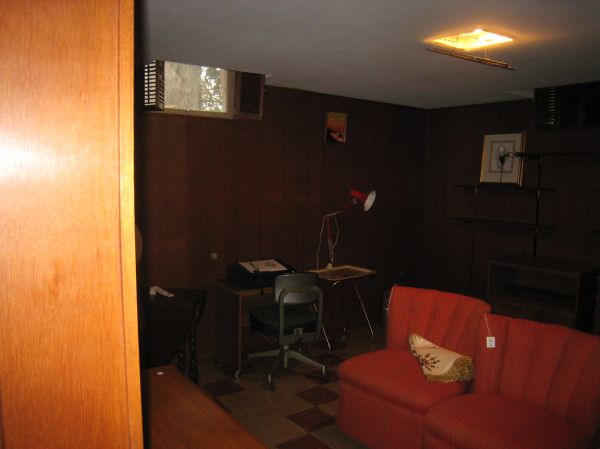


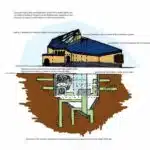

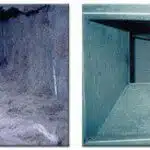



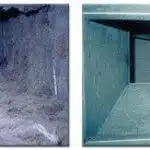




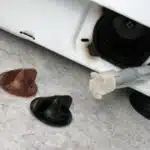









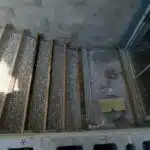

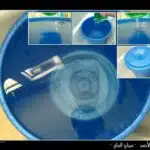
![How To Remove Perfume Odors From Clothes 28 For pungency, strength, durability and delicacy of odor. Read's Grand Duchess Cologne. [back]](https://green-life.blog/wp-content/uploads/2023/05/b-myfoHrx-jq-150x150.jpg.webp)
